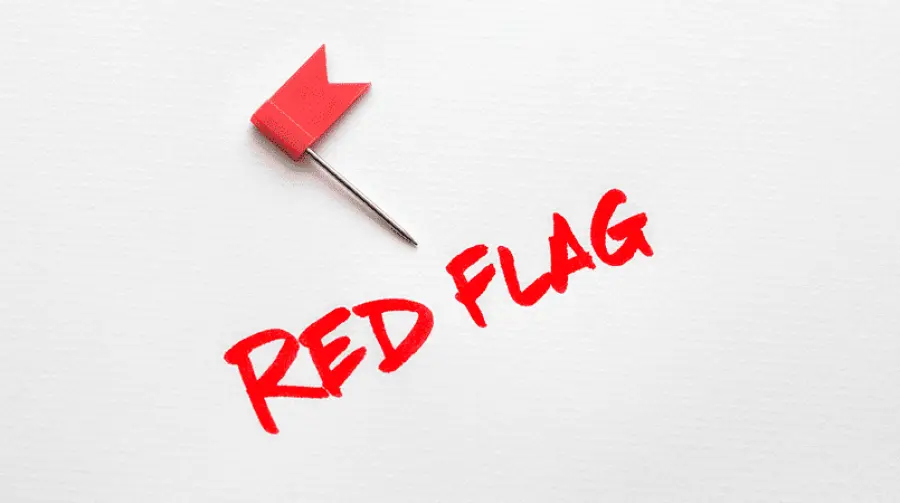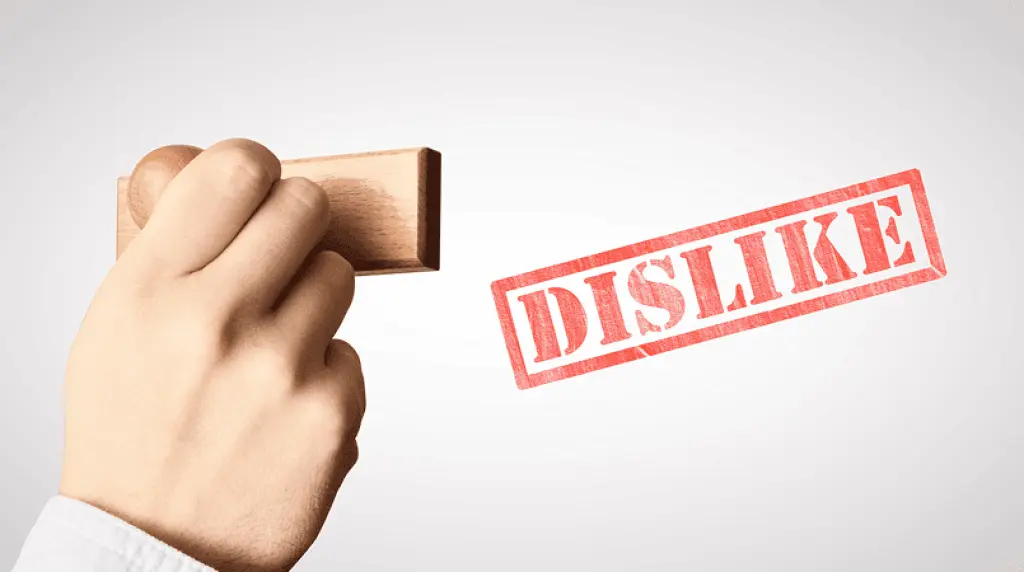Dating tips
June 14, 2025
How to Recognize “Red Flags” in Online Dating


The start of any conversation in an app seems innocent, yet it is precisely in those first minutes that it’s easy to miss the red flags of online dating. More than a third of fraud cases happen because users ignore the initial warning signals, forgetting basic online-dating safety tips. In this guide, we’ll reveal simple steps to help you protect yourself, since Detto supports safe communication for everyone.
What Are “Red Flags” in Online Dating?
By “red flags” in online dating, we mean clear risk markers: conflicting biographies, instant declarations of love, unwillingness to undergo a video call. Noticing them is important, because a lack of reaction can indicate a possible scam on dating sites. Below are the key concepts and reasons why paying attention from the very first line of a message is critical.
The Concept of Red Flags in Online Dating
Red flags in online dating are behavior patterns that deviate from the norm: perfect, unrealistic photos without any everyday shots or friends; vague or evasive answers to simple questions; strange time zones—when it’s evening for you, but your match claims they just woke up; overly quick declarations of love; unwillingness to turn on the camera; a mismatch between the biography and public social-media data; as well as sudden requests to switch to another messenger, send money, or share confidential details about yourself or your family.
Why You Should Pay Attention to Them from the First Message
By ignoring minor inconsistencies, you risk losing money, private photos, and in some cases even a reputation that took years to build offline. The slightest awkward phrasing, an inappropriate compliment, or rushing to move to an external messenger—these are early red flags in online dating that signal a possible scam on dating sites.
Signs of a Fake Profile on a Dating Site
Fake accounts have become the core of the largest online schemes, so a precise understanding of which signs of a fake dating-site profile expose scammers is critical for every user.
Scammers actively invest in studio photo shoots, perfectly edited bios, and automated scripts for mass messaging. However, attention to detail—spelling mistakes in the text, repeated template phrases, absence of geotags or friends in group photos—enables you to spot inconsistencies even before the first meeting.
What a Typical Fake Account Looks Like
Overly glossy photos, minimal text, and no friendly tags are classic signs of a fake profile. Criminals often steal content from real people’s social media, combining photos of different individuals to create a composite image of the “ideal partner.”
Such an account usually features a mix of staged portraits with no everyday details—no fabric wrinkles, no spontaneous smile. A large number of likes accumulated in just a few days indicates the use of bot networks. Add to this quick switches to external platforms, refusal of a short video call, and generalized answers to specific questions—and you have the full portrait of a scam profile.
Why They’re Hard to Spot Immediately
Accounts are disguised as “perfect” partners by copying the jargon and interests of their target audience. Only systematic checks and warning indicators in dating apps can filter out dangerous contacts.
Life is buzzing online, yet almost 70% of complaints concern fakes. So before you hit “Like,” remember the risks.

Top 7 Signs of a Fake Profile:
- Studio-quality portraits without any candid shots with friends.
- Immediate suggestion to switch to a private messenger.
- Profile creation date—in the last few days, yet hundreds of likes.
- Lots of compliments but no specifics about themselves.
- Refusal of a video call under various pretexts.
- Geotags that don’t match the claimed city.
- Slight hint at financial help even before the meeting.
A match of two or three of these points is a strong reason to end the conversation by following online-dating safety advice. Detto advises you to block and report suspicious users immediately.
Red Flag Number One in Online Dating
Leading experts believe that the number-one red flag in online dating is a financial request. Manipulators exploit sincerity, pushing the victim to act emotionally.
Requests for Money — the Main Sign of a Scam
If your match asks you to pay for a “ticket home” or to cover an “urgent medical operation,” you are facing a classic dating-site scam.
Common Manipulations Used by Scammers
A scammer first gently raises your trust level with compliments and feigned deep emotional involvement, then strikes at your sympathy with tear-jerking stories about illness or debt to extract money; therefore, detailed knowledge of these common scenarios and cool-headed critical thinking become your strongest armor in the dangerous world of online dating and romantic fraud.
Five Manipulations to Be Aware Of:
- “I’m stuck abroad and my bank card is blocked.”
“My child urgently needs medicine—only you can help.”
“Treat me now; I’ll pay you back with interest when we meet.”
“I’m $50 short to transfer my documents—save our future.”
“Buy cryptocurrency in my name—it’s safer that way.”
Do not transfer funds to anyone you haven’t met in person. Follow online-dating safety advice—verify facts and consult friends. Detto warns: money and romance make a bad combination.
Warning Signs in Dating Apps
They appear in the very first messages. A vigilant user will notice mismatched time zones, aggressive compliments, sudden suggestions to switch to another messenger or delete profiles “for the sake of privacy.” Often scammers avoid video calls, citing a “broken camera,” or write pompous monologues without specific answers to simple questions.
If your match actively probes for personal data while refusing to disclose their own, that’s an alarming signal. Analyze the tone of the correspondence, repeated templated phrases, and the excessively rapid pace of the relationship. Upon detecting several such indicators, set boundaries or end the contact while the situation remains safe.
How Scammers Behave in the Early Stages of Communication
Excessive compliments pouring in from the very first seconds of interaction, combined with an almost immediate suggestion to “delete profiles” supposedly to “preserve our special love from prying eyes,” indicate a subtle but deliberate attempt at manipulation. Such rushed steps are designed to isolate you from the platform’s protections, deprive you of the opportunity to get a second opinion, and push you toward blind trust. These are clear red flags in online dating that should alert you and make you slow down the pace.
How to Avoid the Trap: Initial User Actions
The first five minutes of a conversation set the tone for everything that follows, so observe every nuance closely: tone, word choice, response speed, the logic of facts presented, your match’s willingness to ask follow-up questions and share specifics—these small details often reveal a person’s true intentions and honest behavior or, conversely, expose masked fraud right from the start.
Three Actions to Keep You Safe:
- Perform a reverse image search to check whether the photo was stolen from another profile; this simple check often uncovers the unpleasant truth about someone else’s identity.
Ask about local events or news; a real user will respond quickly, while a fake will resort to generic phrases or make factual mistakes even in simple details.
Refuse to switch to an external chat until you’ve done a video call; this rule filters out most scammers hiding behind stolen photos.
Following these three steps is an effective filter. Remember online-dating safety tips and stay calm.
Online Dating Safety Tips for Women
Women face unique risks, so safety tips for women in online dating carry special importance. Proper habits reduce the chances of becoming a stalking or harassment victim.
Special Risks for Women in Dating Apps
Social engineering, overt or veiled sexist threats, attempts to control your location in real time and monitor your movements via “live-tracking” or shared photos — these are the most common attacks targeting women in the digital dating space.
Scammers often apply psychological pressure, blackmail with intimate images, guilt trips, and performative jealousy to dominate the match and gradually restrict her autonomy. They frequently move conversations to less secure messengers and demand immediate meetups in deserted or remote locations.
How to Avoid the Trap: Initial User Actions
The steps below are based on live feedback and real stories from women who faced hidden threats in popular dating apps. They address both typical psychological scams and technical loopholes that let attackers track victims. Use them as soon as you sense something is off, and don’t delay the check. Time works against you in digital scenarios and can cost you peace of mind and money.

Top 5 Actions to Reduce Risks:
- Enable two-factor authentication so outsiders can’t hack your profile.
- Use a separate backup email account for dating.
- Plan first meetings exclusively in well-populated, daytime locations.
- Do not post photos with real-time geotags.
- Share your route and meeting time with a friend.
Following these steps will minimize danger. Regular online-dating safety tips from Detto will help you stay confident.
General Online Dating Safety Tips
In summary, follow the golden rule: verify first, then emotions. These online-dating safety tips are universal across all platforms.
Profile Verification — a Must-Have Before Meeting
Before you schedule an in-person date, a deep profile check is mandatory — a must-have before meeting. Review the candidate’s pages on popular social networks, compare photos, post dates, and geotags; look for repeated templates or signs of a fake profile such as an overly perfect bio or lack of friendly tags.
Suggest a short video call: it will confirm identity, let you recognize their voice, analyze facial expressions, and ensure the person really matches their photos and that their reactions are natural, not scripted.
Why You Shouldn’t Switch to Messengers Immediately
Don’t rush to move the conversation to external messengers, even if your match insists on “convenience” or “privacy.” The built-in chat on the platform has advanced blocking tools, automatic filters for suspicious links, and the ability to file a complaint quickly — these are key online-dating safety tips. Only after a video check and a few days of unhurried dialogue, when you’re confident in your match’s sincerity, decide whether to exchange private contacts, as data leaks and emotional manipulation most often occur at this stage.